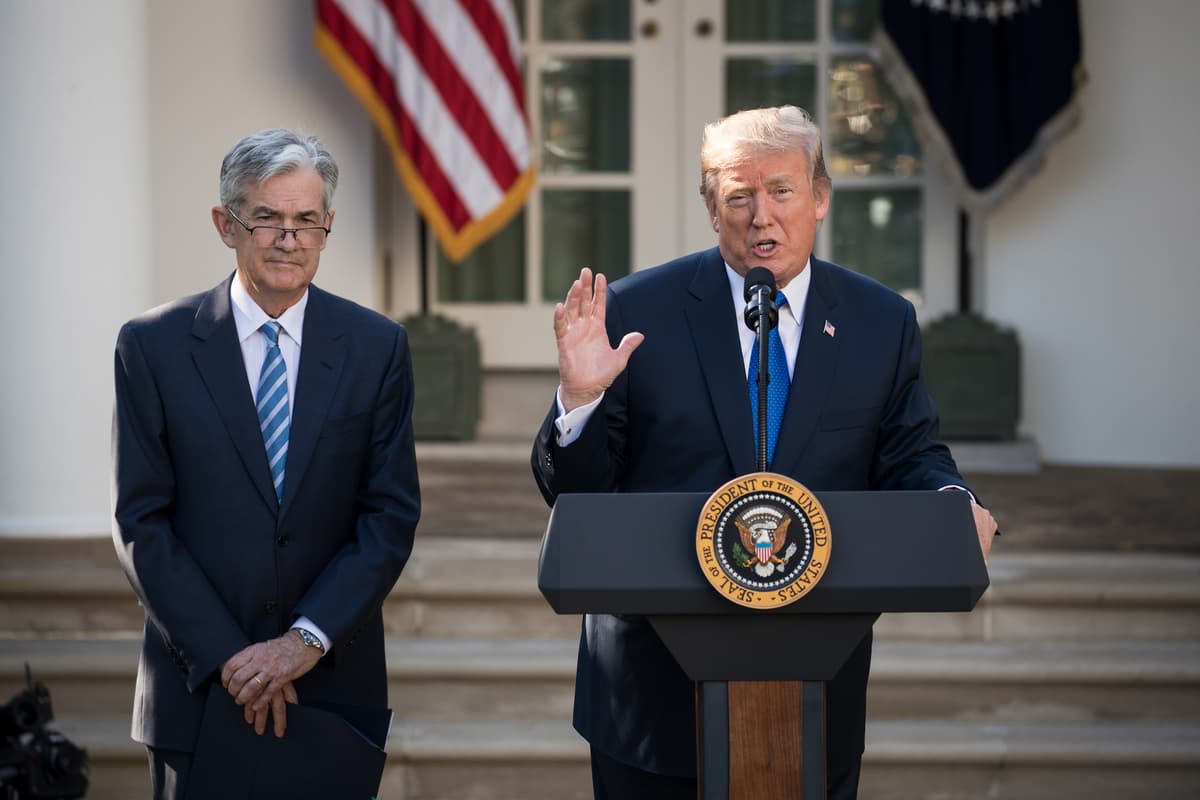Trump on the Fed
The Republican candidate makes it clear that he wants a say in monetary policy.

President Trump is sparking a renewed wave of criticism for wanting “at least say” in setting interest rates. It could “rekindle fears” that he “might try to influence the politically independent” Fed, the Times cavils. This misses the point that a free-wheeling Fed is itself the Constitutional aberration. The Founders granted all the monetary powers of the federal government to elected officials and meant the president to have at least some say in policy questions.
“I feel that the president should have at least say in there, yeah, I feel that strongly,” is how the GOP nominee put it Thursday. “I think I have a better instinct than, in many cases, people that would be on the Federal Reserve, or the chairman.” No word yet of any rejoinder from Chairman Powell. Trump’s suggestion, though, “would go against the longstanding practice of the US Federal Reserve being independent of political actors,” Bloomberg News sniffs.
The Constitution, though, fails to utter the word “independence,” much less in connection with any federal agency. Nor, for that matter, did the Framers anticipate a Federal Reserve System. They did know, though, that America would have a monetary policy, and authority over it was placed in the hands of elected officials. The Constitution grants these powers over money to the most political branch of the federal contraption, the Congress.
That’s why Congress was given the powers to tax, to “regulate commerce,” to “borrow money on the credit of the United States,” to “coin money, regulate the value thereof, and of foreign coin,” and to “fix the standard of weights and measures.” Congress used these monetary powers to set the nation on a specie standard. Paper money was convertible into gold or silver at a rate fixed by law. The president had a say in this, too, signing the monetary bills into law.
For more than a century, America waxed along with its silver- and gold-backed dollar. The population boomed, and the economy soared to world-leading heights, yet inflation was held to an annual average of just 0.2 percent, economists William Luther and Alexander Salter observe — up until 1913. That was the year that Congress, under the influence of Progressives, decided to hand over its monetary powers to a new creation, the Federal Reserve.
At that time, the dollar was defined in law as 20.67th of an ounce of gold, the same value it had held since 1834. Since 1913, the dollar’s value has plunged until it now fetches less than a 2,450th of an ounce. The persistent inflation of prices, far from boosting the real prosperity of Americans, has created instead what these columns have lamented as the “illusion of wealth.” Seen through this lens, the so-called “independence” of the Fed has been a failure.
Which brings us back to President Trump. It was gratifying that he placed at the top of the GOP platform the goal to “defeat Inflation.” That could point toward a restoration of sound money and an end to the fiat dollar that has helped spur the federal government’s overspending and surging debt. At the same time, Trump and his running mate also speak favorably about devaluing the dollar to gain trade advantages.
Such talk raises concerns that Trump and Senator Vance are the first candidates since 1896 to run for president on a campaign for a weaker dollar. It’s not clear, though, how such strategy would help grow the economy — much less vanquish inflation. At the same time, what can one expect in the way of a commitment to honest money — or, say, fiscal responsibility, or any other variety of economic rationality — from the Democratic standard-bearers?

